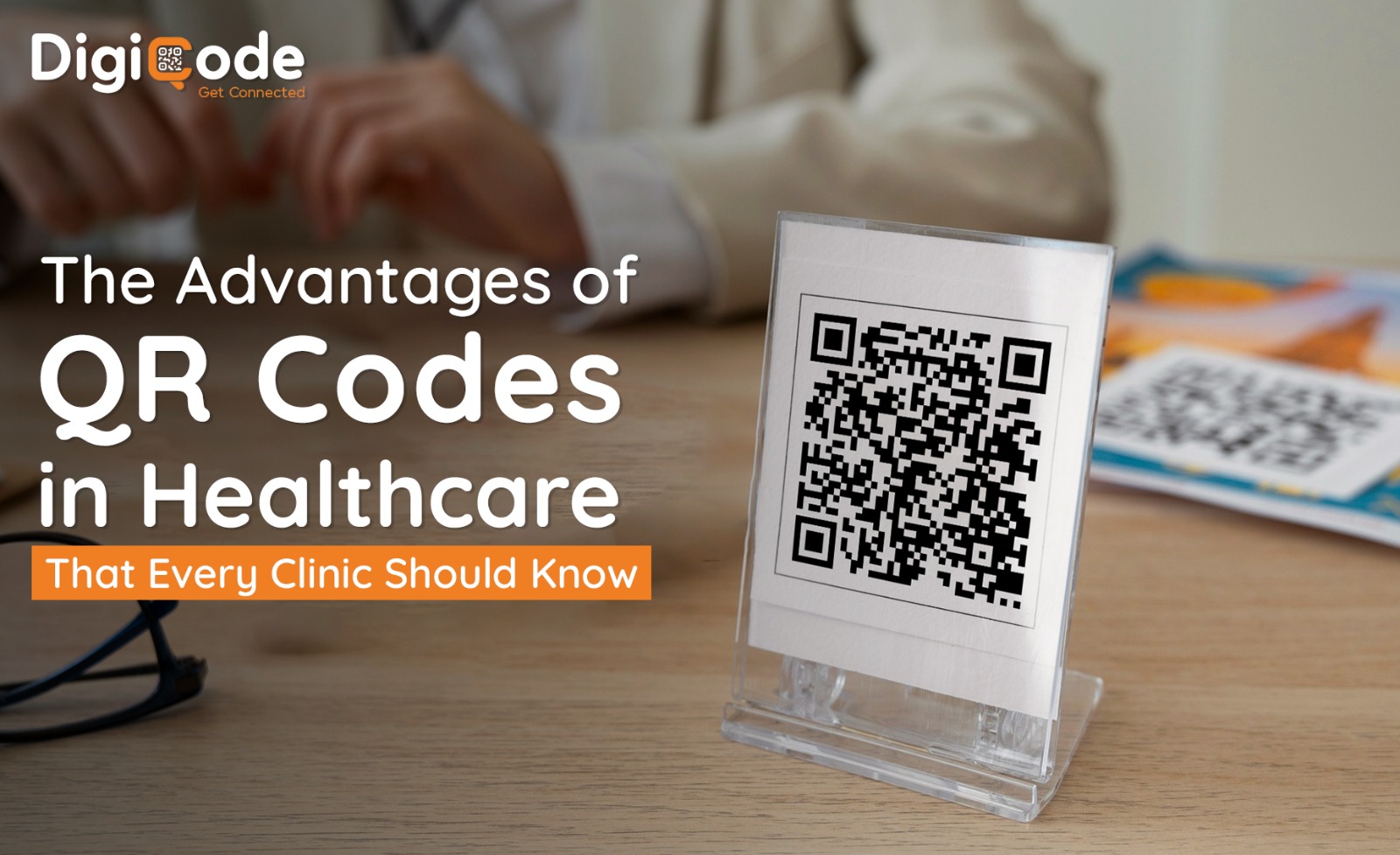
The Advantages of QR Codes in Healthcare That Every Clinic Should Know
Category: Health Care
Healthcare today is not just about good
treatment, it’s also about how smoothly a patient’s journey flows from booking
appointments to receiving reports. With growing patient numbers and rising
expectations for faster, safer, and more digital-friendly systems, hospitals
and clinics need tools that make their operations efficient and
patient-friendly. One of the simplest tools that is proving to be very powerful
is the QR code for healthcare.
Easy to generate, cost-effective, and
accessible to everyone with a smartphone, QR codes are now being used in
clinics worldwide. Let’s look at why they are becoming so important for
healthcare centers and how they can change the way clinics operate.
Why Healthcare Needs QR Codes Today
The need for digital solutions in
healthcare has grown sharply after the pandemic. Patients today prefer
contactless and quick processes, whether it’s paying bills, checking reports,
or scheduling an appointment. Clinics too are looking for ways to reduce
paperwork, save time for staff, and improve accuracy.
Reports show that digitizing hospital
processes can cut administrative costs to a great extent. QR codes offer a
low-cost and practical way to achieve this digitization without investing in
heavy IT systems.
Major Advantages of QR Codes in Healthcare
1. Streamlined Patient Onboarding &
Registrations
Traditional patient registration means
long queues and paper forms. With QR code for
hospital check-in, patients can scan a code at the reception or
even from the clinic’s website & fill in their details digitally. This cuts
down waiting time & avoids mistakes that happen during manual data entry.
Hospitals using QR-based check-ins report faster registrations.
2. Contactless Appointments & Scheduling
Instead of calling the clinic again &
again, patients can just scan a QR code for a
telehealth appointment on
a poster, brochure, or website. They can book their slot directly. It saves
staff time and makes the process simple for patients who like online booking.
3. Easy Access to Medical Records & Test
Results
Many clinics now share reports and
prescriptions through secure QR code for
medical reports. Patients scan a code & access their results
anytime, without printing or waiting in line. This not only saves costs but
also improves patient satisfaction as they get quick, transparent access to
their information.
4. Digital Payments & Billing
Payments in healthcare are sensitive and
need to be smooth. QR-enabled billing allows patients to pay instantly and
securely without cash.
5. Medicine Tracking & Prescription
Verification
Counterfeit medicines are a global
problem. Adding a QR code for
prescriptions on medicine packs or prescriptions helps patients
verify authenticity, read dosage instructions & even set reminders. Clinics
that use this system earn more trust from patients as they feel secure about
the treatment.
6. Patient Education and Awareness
Clinics often need to guide patients
about post-surgery care, diet plans, or managing chronic illnesses. By placing QR codes
on leaflets or posters, clinics can redirect patients to videos, FAQs, or
official healthcare resources. This improves compliance & helps patients
recover better.
7. Internal Operations and Staff Efficiency
Hospitals use a medical QR code system for tracking
equipment, staff identification, and managing inventory. For example, QR-based
inventory reduces equipment loss and improves tracking in large hospitals. For
small clinics, this can save both money and resources.
Static vs Dynamic QR
Codes in Healthcare
●
Static QR Codes work well for fixed
information like clinic timings, helpline numbers, or Wi-Fi access.
●
Dynamic QR codes for healthcare are more
advanced. They can be updated anytime without changing the code, and they also
provide scan analytics such as how many people scanned, from where & when.
For healthcare, where data and flexibility matter a lot, dynamic QR codes are a
better choice.
Key Concerns Healthcare
Providers May Have
●
Data Security: QR codes should comply with
healthcare data laws like HIPAA or GDPR to protect patient data
●
Accessibility: Codes should be tested across
devices and easy to scan under different lighting conditions
●
Reliability: Clinics must use a generator that
allows updates, customization, and stable functioning of codes
Making Healthcare Simple
With QR Codes
For clinics and healthcare providers, QR
codes are no longer just an option. They are a necessity. From patient
registrations to secure payments, from easy report access to QR code for patient records and medicine
tracking, QR codes are helping healthcare systems run faster, safer, and more
patient-focused.
At Digi QR Code Generator, we have built a
platform that makes this transition simple for you. With us, you can create
both static and dynamic QR codes completely free of cost, customize them with
your branding, and edit them anytime without worrying about reprinting. Our
solution also gives you detailed scan analytics, so you know exactly how
patients are interacting with your codes.
We are trusted by businesses and
professionals because our QR codes are secure, reliable & designed to work
seamlessly across devices. For healthcare centers that want to simplify daily
operations while improving patient experience, our Digi QR Code Generator is
the most effective and trusted choice. We don’t just provide QR codes, we
provide a complete digital solution that helps your clinic stay ahead.
FAQs
1.
Are QR codes safe for sharing patient information?
Yes, when generated with secure tools, QR
codes can be HIPAA/GDPR-compliant and protect sensitive healthcare data.
2.
Can QR codes be used for vaccination certificates?
Yes. A QR code for vaccination
certificate lets patients store and show their vaccine details easily. It also
helps hospitals, travel checks, and offices confirm records quickly and safely.
3.
How does a QR code for digital health records help clinics and patients?
A QR code for digital health records
gives patients quick access to their full medical history in one place. Clinics
save time, reduce paperwork & share records securely.